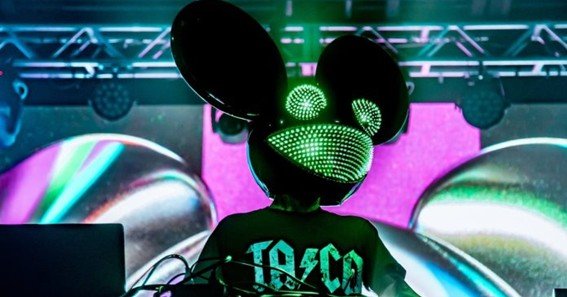The question “why did Deadmau5 flop” has been a topic of discussion among fans and critics alike. While “flop” might be a strong term, it’s evident that Deadmau5, once a dominant force in the EDM scene, has seen a shift in his mainstream presence. This article delves into the multifaceted reasons behind this evolution.
1. Changing Musical Landscape
The EDM scene has undergone significant transformations over the past decade. Genres like dubstep, trap, and future bass have risen in popularity, often overshadowing the progressive house style that Deadmau5 is known for. As musical tastes evolved, artists who adapted to these trends maintained or grew their mainstream appeal, while those who stayed true to their original sound, like Deadmau5, experienced a relative decline in prominence.
2. Controversial Public Persona
Deadmau5, born Joel Zimmerman, is known for his candidness and sometimes abrasive commentary. His outspoken nature, including critiques of fellow artists and the industry, has garnered both admiration and criticism. While authenticity is appreciated by many, his unfiltered remarks have occasionally alienated parts of his audience and industry peers. For instance, his comments about DJs “just pressing play” sparked debates about live performances in EDM.
3. Inconsistent Musical Releases
Deadmau5’s discography post-2010 has been met with mixed reviews. Albums like “W:/2016ALBUM/” received criticism for lacking cohesion and innovation. Even Zimmerman himself expressed dissatisfaction with some of his work, describing certain releases as rushed or not meeting his standards. Such inconsistencies can impact an artist’s momentum and fan engagement.
4. Shift in Personal Priorities
Over the years, Deadmau5 has shown a preference for a more private life, focusing on personal projects and interests outside of mainstream music. His move to a farm in Ontario and reduced media appearances indicate a deliberate step back from the limelight. This shift, while beneficial for personal well-being, may contribute to perceptions of decreased relevance in the fast-paced music industry.
5. Evolving Fan Expectations
Long-time fans have noted changes in Deadmau5’s live performances and musical direction. While his early shows were praised for their immersive experiences, some recent performances have been described as overly technical or lacking the emotional connection of earlier sets. As audiences evolve, maintaining engagement requires balancing innovation with the core elements that initially attracted fans.
FAQ
Q1: Is Deadmau5 still producing music?
Yes, Deadmau5 continues to produce and release music, often exploring new sounds and collaborations.
Q2: Has Deadmau5 retired from live performances?
No, he still performs live, though perhaps less frequently and with a focus on select events.
Q3: Did Deadmau5’s controversies significantly impact his career?
While controversies may have affected public perception, his core fan base remains supportive, and he continues to have a presence in the EDM community.
Q4: How has Deadmau5 adapted to changes in the music industry?
Deadmau5 has embraced technological advancements, including virtual reality and streaming platforms, to reach audiences in new ways.
Q5: What is Deadmau5’s legacy in the EDM scene?
Deadmau5 is regarded as a pioneer in electronic music, known for his distinctive sound and contributions to the genre’s growth.
In conclusion, while Deadmau5 may not dominate mainstream charts as he once did, labeling his career as a “flop” overlooks the nuances of artistic evolution and personal choice. His influence on EDM is undeniable, and his journey reflects the challenges and triumphs of sustaining a long-term career in a dynamic industry.










